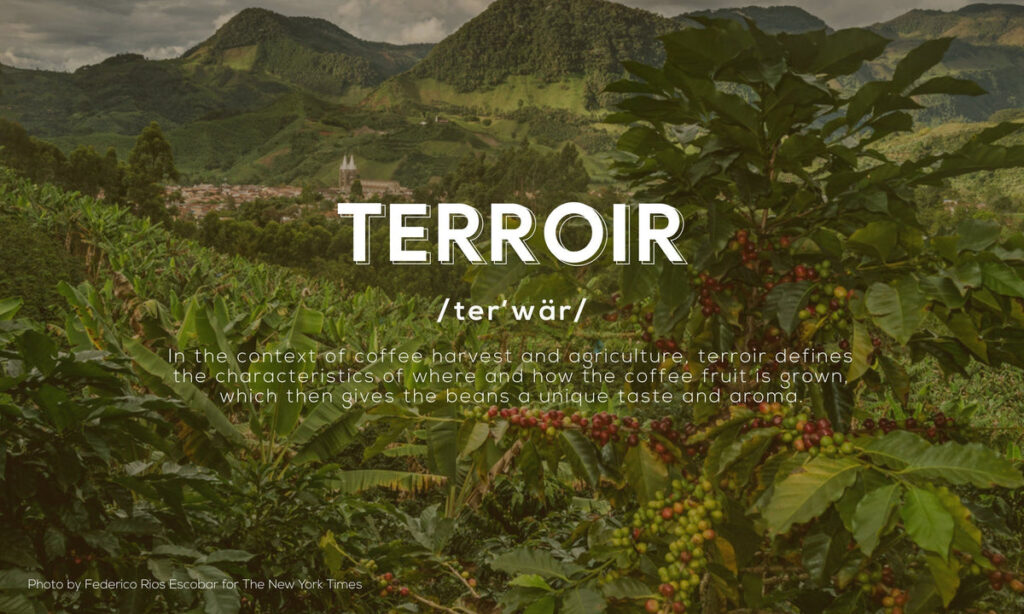Smart Farming, Smart Funding: The Venture Capital Movement in Indonesian Agriculture
What is Venture Capital?
Venture capital is a type of private equity financing where investors provide funds to startups and small businesses with high growth potential, typically in their early stages. Unlike bank loans, VC firms offer not just money but also mentorship and strategic guidance. In agriculture, this means funding innovative startups that aim to modernize farming, improve supply chains, or develop new technologies, which is vital for countries like Indonesia, where traditional methods need upgrading for better productivity and sustainability.
Role in Agriculture Startups
VC is essential for agritech startups, investing in areas like precision farming and digital solutions. In Indonesia, the digital economy’s rapid growth, from US$41 billion in 2019 to US$77 billion in 2022 (Xendit), has attracted VC firms like East Ventures and Alpha JWC Ventures. These firms back startups addressing local challenges, such as connecting farmers with markets or promoting sustainable practices, enhancing food security and economic development.
Specific Examples in Indonesia
Notable Indonesian agritech startups include iGrow, which links investors with farmers for organic production, backed by 500 Startups and East Ventures. Eden Farm, a marketplace for fresh produce, has funding from Global Founders Capital and others. These examples show how VC supports innovation, like iGrow’s “Farmville for real life” model, improving agricultural efficiency.
Challenges and Opportunities
While VC boosts innovation, there’s debate on its effectiveness during economic downturns, like the 2023 funding drop. Research suggests VC fosters R&D, as seen in a NBER study on agricultural R&D growth. In Indonesia, VC’s role in supporting startups during uncertainty, like COVID-19, shows moderate impact, highlighting its potential to drive sustainable agriculture forward.
Survey Note: Detailed Analysis of Venture Capital in Indonesian Agriculture Startups
This survey note provides a comprehensive examination of venture capital (VC) and its pivotal role in agriculture startups, with a specific focus on Indonesia. Drawing from academic research, news articles, and business reports, this analysis aims to elucidate the mechanisms, impacts, and examples of VC in this sector, ensuring all information is verifiable and current as of April 13, 2025.
Understanding Venture Capital and Its Agricultural Context
Venture capital is defined as a form of private equity financing provided by VC firms to startups and small businesses with long-term growth potential, typically in early stages. Unlike traditional financing, VC offers not only capital but also strategic guidance and mentorship, which is crucial for high-risk, high-reward sectors like agriculture. In agriculture, VC investments focus on innovative startups that aim to modernize farming practices, enhance supply chains, and develop new technologies. This is particularly significant in developing countries where traditional methods may hinder productivity and sustainability. A study by the National Bureau of Economic Research (NBER), titled “Venture Capital and the Transformation of Private R&D for Agriculture”, highlights that VC investments in agricultural R&D have increased from nearly zero in the early 2000s to billions by 2018, supporting new entrants in concentrated markets and fostering innovation. This global trend is mirrored in Indonesia, where agriculture is a key economic sector, necessitating modernization to meet growing demands.
Venture Capital in Indonesia’s Agriculture Startup Ecosystem
Indonesia’s digital economy has seen remarkable growth, making it a hotspot for VC investments. According to a report by Google, Temasek, and Bain & Company, cited in an article by Xendit, the digital industry expanded from US$41 billion in 2019 to US$77 billion in 2022, with internet users rising from 150 million to 203 million. This growth has fueled a surge in technology-enabled startups, including agritech. VC firms such as East Ventures, Alpha JWC Ventures, and Patamar, as noted in Top 13 Venture Capital Firms in Indonesia in 2024, have been active, investing in sectors like agriculture, fintech, and supply chain. These firms provide seed to growth-stage funding, with investments ranging from US$200k to US$20 million, as seen with Kejora Capital in “Venture Capital Careers | 15+ Venture Capital Firms in Indonesia”. The focus is on startups addressing local agricultural challenges, such as improving market access for smallholder farmers and promoting sustainable practices, aligning with Indonesia’s economic and food security goals.
Academic Insights into Venture Capital Operations
Academic research provides deeper insights into VC’s role in Indonesia. A study titled “The Role of Venture Capital on Start-up Business Development in Indonesia” in the Journal of Accounting and Investment reveals that VC firms prioritize criteria like team members, product offerings, marketing strategies, and exit strategies before investing, ensuring startups have a solid foundation. Another research piece, “Determinants of Venture Capital Performance in Indonesia” on ResearchGate, identifies reputation (37.4%), network broadness (13.7%), and syndication as key factors influencing VC success, emphasizing the strategic importance beyond mere funding. Additionally, a study on “Venture vs Investment, Which Type of Financing was more Demanded by Agriculture, Forestry, and Aquaculture Sector?” in Daengku: Journal of Humanities and Social Sciences Innovation found that VC financing has a moderate impact on agriculture during economic uncertainty like COVID-19, compared to other financing types, highlighting its role in supporting innovation during crises.
Successful Agritech Startups in Indonesia
Specific examples illustrate VC’s impact. iGrow, dubbed “Farmville for real life,” connects investors with underemployed farmers to utilize under-utilized land for organic production, backed by 500 Startups and East Ventures, as reported in 500 Startups, East Ventures invest in Indonesian agriculture-tech startup iGrow. Eden Farm, founded in 2017, is a B2B marketplace for fresh produce, raising funds from Global Founders Capital and AppWorks, as noted in Top Agritech Startups in Indonesia. Semaai provides technology solutions for smallholder farmers, also attracting VC funding. These startups address critical issues like market access, crop yield enhancement through precision farming, and sustainability, demonstrating how VC-backed innovations can transform Indonesian agriculture.
Challenges, Opportunities, and Future Outlook
Despite its benefits, VC faces challenges, particularly during economic downturns. An AgFunder report, Agrifood, AI, Biology and Climate VC Firm, notes a 49% year-over-year decline in agritech funding in 2023, more than the broader VC market’s 38% drop, indicating market volatility. However, opportunities remain, with firms like THRIVE by SVG Ventures, as mentioned in THRIVE Agrifood by SVG Ventures, supporting startups through accelerators and mentorship. The evidence suggests VC’s role in fostering R&D and new market entrants, as seen in the NBER study, positions it as a key driver for sustainable agriculture in Indonesia. As the digital economy grows, VC is likely to remain crucial, bridging traditional farming with modern technology, enhancing food security, and driving economic development.
Author
Muhammad Satrio
Muhammad Satrio is a multidisciplinary professional with a background in Agroecotechnology and a strong interest in agribusiness, export management, and digital marketing. He has worked in both national and international companies, gaining valuable experience in multicultural environments. With hands-on involvement in social media strategy, translation, hospitality, and research in landscape design and biotechnology, Satrio is known for his adaptability, multilingual fluency, and familiarity with ISO standards. He thrives in dynamic roles that challenge him to grow beyond his comfort zone.


